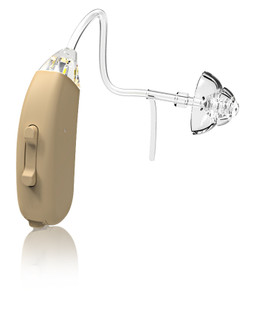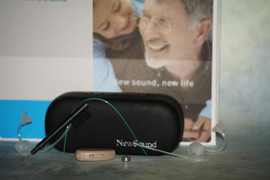Understanding the 5 Most Common Reasons Hearing Aids Stop Working
Posted by DR Paul on Nov 04, 2024
It's no secret that hearing aids are a wonderful invention, bringing the joy of sound back into the lives of many. However, there may be times when these little marvels of technology suddenly stop working, leaving you in silence and perhaps a bit of frustration. If you've ever found yourself wondering why your hearing aids have stopped working or if you're just looking to avoid potential pitfalls down the road, this blog is for you. Let's explore some common issues that might cause hearing aids to malfunction and how you can address them with ease and confidence.
1. Battery Problems - The Simple Fix:
The most common reason for hearing aid failure tends to be battery-related issues. Batteries power your device, and even though they are small in size, they hold a huge responsibility. If your hearing aid stops working unexpectedly, the first thing to do is check if the batteries need replacing or recharging. Sometimes it might just be an issue of poor battery contact due to corrosion or dirt blocking the connections. Regularly cleaning your battery compartment and ensuring you have spare batteries on hand can save you from sudden silences.
2. Moisture Damage - The Silent Culprit:
Hearing aids are sensitive devices that can easily be affected by moisture or humidity. Whether it's sweat during an active day or accidental exposure to rain, moisture can seep into your device's internal components causing it to temporarily stop working or even sustain permanent damage over time. Using a dehumidifier specifically designed for hearing aids overnight can help keep them dry and functioning optimally.
3. Earwax Build-Up - An Unseen Barrier:
Your ears naturally produce wax as a protective measure, but sometimes it can accumulate and block sound from reaching your eardrum effectively. Earwax build-up not only affects how well you hear but also causes feedback issues in your hearing aid if it clogs up microphones or speakers within the device itself. Routine cleaning using tools provided by your audiologist will help maintain clear pathways for sound transmission.
4. Physical Damage - Handling with Care:
Despite being built to withstand daily use, hearing aids require gentle handling due to their delicate nature and intricate design features like tiny wires and circuits inside them that could be damaged by drops or rough handling accidentally occurring during insertion/removal processes each day! Ensuring proper storage when not in use along with periodic professional check-ups helps prevent any physical wear-and-tear affecting performance longevity over time too.
5. Programming Issues - Seek Professional Help:
Occasionally technical glitches arise due solely based around settings programmed incorrectly at fitting stages initially (or later adjustments) which means sounds aren't being amplified accurately anymore leading users feeling lost disconnected again despite having devices actually switched "on". Should this happen visiting audiologist promptly allows recalibration restoring intended functionality swiftly without delay!
In conclusion, while it may seem daunting when your trusty hearing aids stop working all of a sudden rest assured knowing solutions often straightforward simple requiring minimal effort resolve quickly efficiently moving forward peacefully once more! Remember preventative care routine maintenance key keeping these valuable tools running smoothly long-term benefiting quality life.










